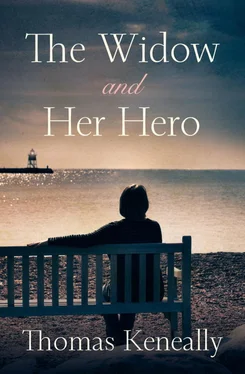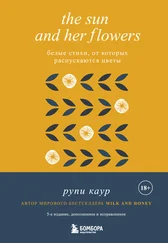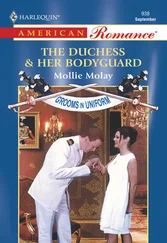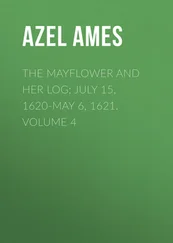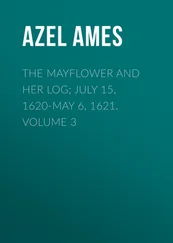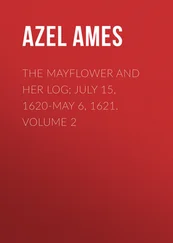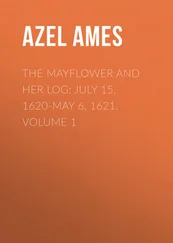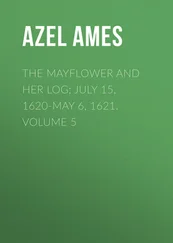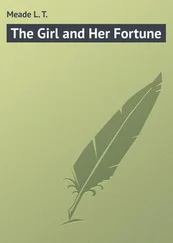You’re making a fool of yourself, Susan.
Good. And you’re playing me for one.
Suddenly, Enright began appealing to Leo and Mortmain. You see, she doesn’t mind using your flat as an arena of battle. Well, I’m not biting today, Susan. Excuse me. I shall see you at the office, gentlemen.
He turned on his heel, in a way which implied not a retreat but a dignified withdrawal.
Coward, Susan yelled. Craven bastard! Back to your whore.
His retreating steps could be heard on the stairs, and Leo closed the door, shaking his head.
Mortmain said, The bugger needs a broken nose. I don’t think we should take that from anyone, Leo.
Leo looked at me. I’m sorry, love, he told me, as if the madman at the door had soured everything.
Susan turned, taken out of herself by Leo’s concern, and came and hugged me. At that second, I began to resent her.
She said, I’m not going to risk that you’ll be bothered any further. I’ll go to his bloody room at the hotel.
We told her to stay for breakfast first. But Dotty was not as warm towards her as the men. And later Dotty would tell me she believed that from that day, Major Enright, despite all conscious professionalism, at some level wished them ill, and even wished them dead.
At morning tea time during that day’s meeting, I approached Major Enright to make the normal speech, which would have consisted of: Sir, I don’t care who you are. I don’t intend to stay in the army after the war, and so I don’t have to kowtow to anyone. I’m surprised a regular officer would come to other officers’ doors making the accusations you did. And I won’t have my wife upset by outbursts.
I had to queue – I saw Rufus giving him a bit of a shellacking too. But Enright’s face remained set though he was very pale. He was probably copping mullock from his girlfriend as well, and so he should.
Later, he came to Rufus and me voluntarily. He said, Unfortunate scene this morning. That bloody woman has the power to put everyone in the wrong. Sorry for anything untoward I said. The woman knows I’m seeking a divorce, and that’s that. Divorce is a big enough disadvantage for a professional officer, though many colleagues have remarked to me how inappropriate a soldier’s wife Susan makes. And of course, I overlook anything extreme you might have said. Can we all be men about this? And gentlemen as well?
That was as good as we could hope for. Rufus nodded with a half-smile on his face. Later, at lunch, he said to me, The bugger only learned to talk like that from a West End play, on secondment to British regiments in India. He gets it all out of sequence, anyhow, and he gave himself away at the end by pleading.
I wondered where he thought I learned to talk. But I think he was saying the major’s utterances were only skin deep. In any case, we agreed, it was as good an apology as we would get from Enright.
After Leo and Rufus had gone to work on the morning of the confrontation between Major Enright and Leo and Rufus, I decided to go into town by tram to look at Myers and other department stores of Melbourne renown. You cannot imagine the attraction of such an idea to someone raised in the Braidwood and Canberra of the time. Captain Foxhill had lined up a part-time job for me doing filing for the Transport Corps at Victoria barracks, where Leo frequently did his afternoon gymnastics. But I did not have to start for a few days.
I was thus able to leave Dotty to work on her mysterious book, and would be able to return in the afternoon and ask her, as if I routinely asked people this, How is your book coming along?
Susan Enright, still on the premises, complicated all this in a peculiar way. She asked if she could come to town with me. She seemed quite cheery, ready for a day’s window-shopping after the scene with her husband that morning. I couldn’t say no, but from her typewriter, Dotty asked, Didn’t you say you intended to book into the Windsor?
Susan said she would collect her luggage after lunch.
I had expected to catch the tram, but as, wearing our finest, we left the block of flats, a taxi appeared bearing its great bladder of coal gas in a bracket on its roof. She insisted we catch it, and when we reached Collins Street and I offered, like the bumpkin I was, to pay the driver, she cheerily permitted me to. In Myers, Buckley and Nunn, Foy and Gibson, she entered into crazily jolly conversations with girls in the jewellery and cosmetic departments about what her habitual choices were in all these matters. It was as if she hadn’t been rebuffed by her husband at all. Or else she was confident her husband would take her back. Again, girls from Braidwood didn’t behave like that in shops. You’ve got no idea what a constrained bunch of people we country girls were, terrified that someone would think us flash, or skites, or having tickets on ourselves, all of which were the greatest crimes a person could commit in the bush. But Mrs Enright was free of all such fears.
At lunchtime, she tried to talk me into a hotel dining room instead of the cafeteria at Myers. She was rather depressed that you couldn’t get a drink at Myers. At least the Windsor has a bar, she said.
We got home by tram at mid-afternoon and could hear from the stairs Dotty still working, like a real writer in Hollywood pictures, with a quite feverish clatter of keys. I wondered whether we should go back and sit in the parkland a while, lest we interrupt her. We’ll just creep in, Susan insisted. I must pack and get going.
That prospect of her going was so pleasant that I let myself be talked into opening the door to our half of the flat. Dotty, of course, looked up from her work. I’m just creeping in to pack, Susan explained, moving in a stagy creeping gait.
I said, Please don’t let us disturb you, Dotty.
While Susan packed, I sat in a chair reading Smith’s Weekly and its rollicking attacks on Generals MacArthur and Blamey. To them MacArthur was a poseur playing to the American press in hope of the Republican Party nomination for the Presidency. The Australian General Blamey was a well-connected tippler. Satire is its own reward, and often it is outdone by reality itself – I realise all that now. But Smith’s Weekly was considered rather seditious in the household I had grown up in, so I enjoyed it all the more now. I was a little disturbed that with Susan and me in the house, the pace of Dotty’s typing had fallen off. I began to doze and woke to see Dotty standing over me.
How’re the shops this dreary season?
They’re flourishing, I told her. At least that’s the impression of a woman who’s visited only two cities in her entire life.
She smiled and yawned, and sat in the neighbouring lounge chair.
Have you ever written any poetry? I don’t mean about flowers, or some ballad about rounding up cattle. I mean, poetry . I mean about loss and fucking and the misery of children, and why chaps love war and are such deadbeats in bed? Have you read The Waste Land?
Trying to appear at ease with her earthiness, I said no. She tramped into her half of the apartment and came back with a Penguin book.
Read that, Grace, she advised me. Image is everything, so I’m afraid I’m not much of a poet myself. I’m good at outrage, of course. I feel a lot of that. But when I was young in London, and hanging round writers, I always thought my style was pretty thin. A reviewer described my novel as understated, as if it were a virtue.
What was your novel called?
Sweat . It was about the lives of women in Malaya, or a colony like it anyhow. They weep sweat from every pore, I said. They shrivel and pretend it’s a life. A film company showed some interest in it, but then the war came.
Читать дальше
